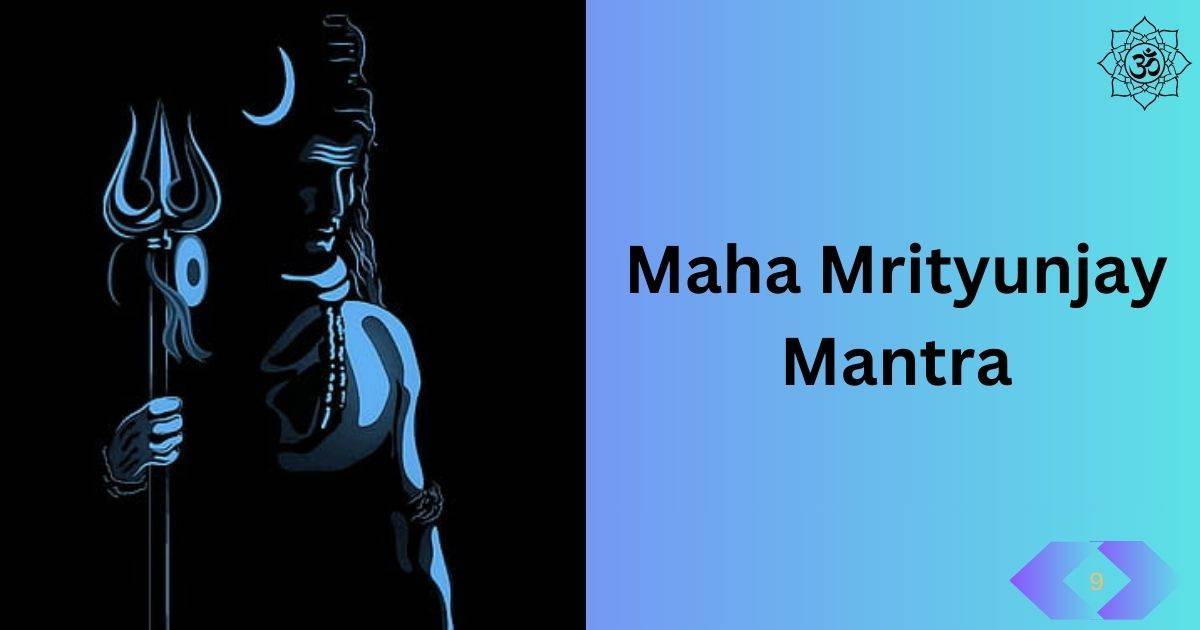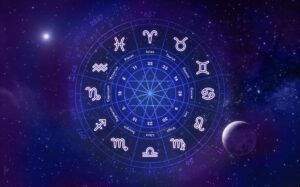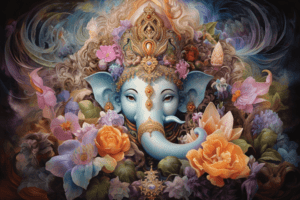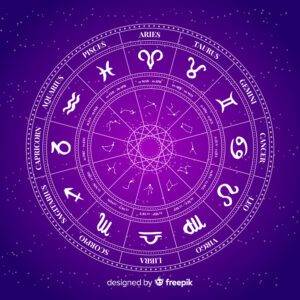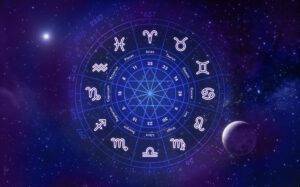Maha Mrityunjaya Mantra For Protect From Death
The Maha Mrityunjaya Mantra is a powerful and revered mantra dedicated to Lord Shiva and is chanted for various purposes, including healing, protection, and spiritual well-being. Here is the Maha Mrityunjaya Mantra:
Sanskrit:
“ॐ त्र्यम्बकं यजामहे सुगन्धिं पुष्टिवर्धनम्
उर्वारुकमिव बन्धनान् मृत्योर्मुक्षीय मामृतात्”
Transliteration:
“Om Tryambakam Yajamahe Sugandhim Pushtivardhanam
Urvarukamiva Bandhanan Mrityor Mukshiya Maamritat”
This mantra is commonly used for health, healing, and spiritual well-being, and it is believed to have the power to conquer death and alleviate suffering. It is often chanted with devotion and sincerity to seek the blessings and grace of Lord Shiva, who is considered the lord of destruction and transformation in Hinduism.
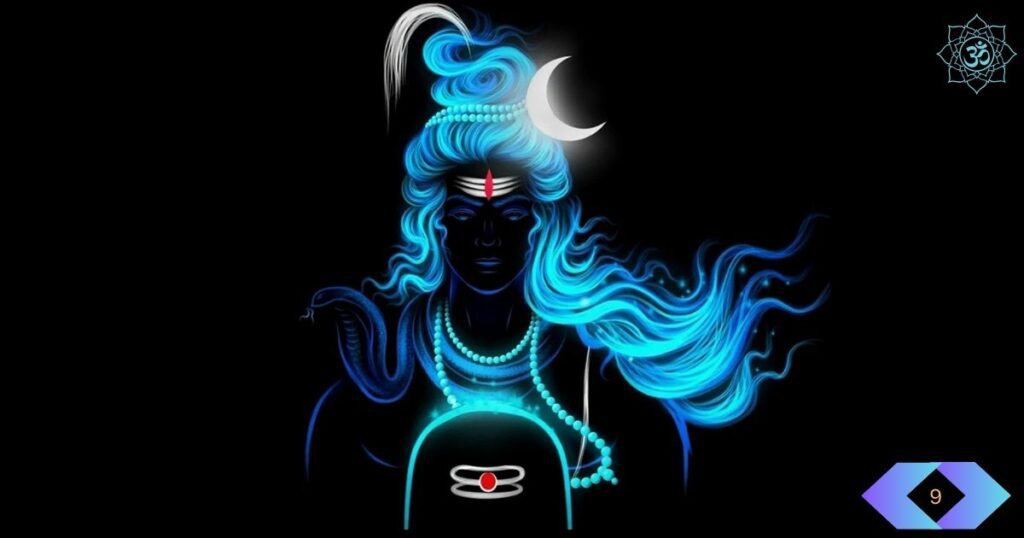
Explanation of the mantra:
The fear of death will be removed by worshiping Lord Shiva, who is the perfumer, the three-eyed, who lives on the ice mountain, who protects the billions of living beings, who is Ardhanarishwar. Fear of immortality is high among human beings due to various reasons in Kali Yuga. For example, to completely remove the fear of death due to vehicles, enemies, pollution, incurable diseases etc.
Uses Of Maha Mrityunjaya Mantra:
The Maha Mrityunjaya Mantra, also known as the “Great Death-Conquering Mantra,” is one of the most powerful and revered mantras in Hinduism. It is dedicated to Lord Shiva, who is considered the lord of destruction and transformation. This mantra is chanted for various purposes, primarily associated with health, healing, and spiritual well-being. Here are some common uses of the Maha Mrityunjaya Mantra:
1. Healing and Recovery: The mantra is often chanted for physical, mental, or emotional healing and recovery from illness, disease, or health issues. It is believed to have the power to alleviate suffering and promote overall well-being.
2. Protection from Negative Forces: The mantra is chanted to seek protection from negative energies, accidents, and untimely death. It is believed to safeguard individuals from harm and misfortune.
3. Spiritual Growth: Chanting the Maha Mrityunjaya Mantra is considered conducive to one’s spiritual journey. It helps in overcoming fears and attachments, leading to spiritual growth and inner transformation.
4. Overcoming Fear of Death: The mantra is particularly effective for those who have a fear of death or fear of the unknown. It instills a sense of peace and acceptance regarding the impermanence of life.
5. Longevity and Prosperity: Chanting the mantra is believed to bring longevity and prosperity by promoting good health and well-being. It is often used to pray for the well-being and longevity of loved ones.
6. Aid for Terminally Ill Patients: Families and caregivers of terminally ill patients sometimes chant the Maha Mrityunjaya Mantra to offer solace and comfort to the patient and to pray for a peaceful transition.
7. Clearing Obstacles: It is used to remove obstacles and hurdles in life, allowing for a smoother path and progress in various endeavors.
8. Meditation and Inner Peace: The mantra is employed in meditation to help practitioners achieve inner peace, tranquility, and a sense of detachment from the material world.
9. Recovery from Addictions: Some individuals chant this mantra as a part of their journey to overcome addictions and negative habits.
10.Funeral and Last Rites: The Maha Mrityunjaya Mantra is recited during funerals and last rites as a way to pray for the peaceful transition of the departed soul.
The power of the Maha Mrityunjaya Mantra is believed to lie not only in its sounds but also in the sincerity, devotion, and faith with which it is chanted. Devotees believe that it can invoke the blessings and grace of Lord Shiva and alleviate suffering, bring healing, and grant spiritual insight. It is important to approach the mantra with respect and a pure heart, regardless of the specific purpose for which it is used.
How To Chant Mantra
The Maha Mrityunjaya Mantra is a powerful and revered mantra dedicated to Lord Shiva. Chanting this mantra is believed to provide protection, healing, and inner strength. Here is a step-by-step guide on how to chant the Maha Mrityunjaya Mantra:
1. Choose a Calm and Quiet Place:
Find a peaceful and clean spot for your practice. This can be a temple, a dedicated meditation space, or anywhere where you can concentrate without disturbances.
2. Prepare:
Wash your hands and face, and ensure you are in a clean and respectful state of mind. It’s often customary to light a lamp or diya and incense as a symbol of reverence.
3. Set an Intention:
Before you begin, set a clear intention for your practice. The Maha Mrityunjaya Mantra is often chanted for healing, protection, and inner strength. You can also dedicate it to someone who may be unwell.
4. Chant the Mantra:
Start reciting the Maha Mrityunjaya Mantra. The mantra is as follows:
Mantra:
“ॐ त्र्यम्बकं यजामहे सुगन्धिं पुष्टिवर्धनम्
उर्वारुकमिव बन्धनान्मृत्योर्मुक्षीय मामृतात्॥”
Transliteration:
“Om Tryambakam Yajamahe Sugandhim Pushtivardhanam
Urvarukamiva Bandhanan Mrityor Mukshiya Maamritat.”
5. Repeat with Devotion:
Chant each syllable of the mantra with devotion and focus. You can use a mala (prayer beads) to keep track of the repetitions. Common practices include chanting it 108 times or in multiples of 9 (e.g., 9, 18, 27, etc.).
6. Visualization:
As you recite the mantra, visualize the healing energy and protective aura of Lord Shiva surrounding you or the person you are praying for.
7. Understand the Meaning:
If you understand the meaning of the mantra, contemplate it as you recite it. The Maha Mrityunjaya Mantra is a plea to Lord Shiva for liberation from the cycle of birth and death and for physical and spiritual healing.
8. Maintain Regularity:
Consistency is important. Chanting the Maha Mrityunjaya Mantra daily, especially in the morning, is a common practice. Tuesdays are considered particularly auspicious for chanting this mantra.
9. Closure:
Conclude your practice with a few moments of silence, reflection, and gratitude. Express your thanks to Lord Shiva for his blessings.
10. Offer Prasad:
If you have prepared prasad (offering of sweets or fruits), you can offer it to Lord Shiva and then share it with others as a symbol of unity and devotion.
Chanting the Maha Mrityunjaya Mantra is believed to bring protection, healing, and inner strength. It’s a practice that can provide peace and tranquility during times of distress and is often used for physical and spiritual well-being.
